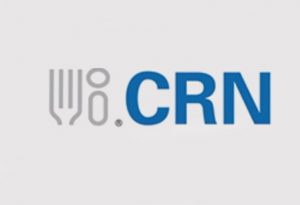WASHINGTON — Nutritional supplements have a role to play in supporting a healthy lifestyle, according to a report that will guide the drafting of new dietary guidelines from the U.S. Department of Agriculture and the U.S. Department of Health and Human Services.
The 2020-2025 Dietary Guidelines for Americans are scheduled to be released later this year.
The 2020 Scientific Report recognizes how dietary supplements can support various U.S. population groups that cannot achieve recommended nutrient levels from dietary intake alone, according to the Council for Responsible Nutrition, which welcomed the report.
 “CRN is especially pleased to see the Committee’s recognition of the appropriate use of dietary supplements during pregnancy and lactation life stages,” said Haiuyen Nguyen, senior director of scientific and regulatory affairs for CRN. “We appreciate the report’s acknowledgment that nutrient needs during these life stages are not expected to be met by food alone, especially for essential nutrients like iron, iodine, and folic acid. CRN also agrees with the committee’s suggestion that choline and magnesium should be further evaluated as levels of inadequacy of both nutrients are high in pregnant and lactating women.”
“CRN is especially pleased to see the Committee’s recognition of the appropriate use of dietary supplements during pregnancy and lactation life stages,” said Haiuyen Nguyen, senior director of scientific and regulatory affairs for CRN. “We appreciate the report’s acknowledgment that nutrient needs during these life stages are not expected to be met by food alone, especially for essential nutrients like iron, iodine, and folic acid. CRN also agrees with the committee’s suggestion that choline and magnesium should be further evaluated as levels of inadequacy of both nutrients are high in pregnant and lactating women.”
Dietary supplements can help the U.S. population meet recommended nutrient intake levels and play a key role in supporting healthy diets, according to CRN, which noted that the committee identified vitamins A, C, D, E, and K, calcium, magnesium, dietary fiber, choline, and potassium as under consumed nutrients, meaning that they are “consumed by many individuals in amounts below the Estimated Average Requirement or Adequate Intake levels.” Vitamin D, iron, calcium, dietary fiber, and potassium remain included as nutrients of public health concern in the recent report, as they continue to be consistently under consumed by the U.S. population and under consumption is linked to adverse health outcomes. The committee lists vitamin D as a nutrient of public health concern for all ages and genders, while iron concerns are targeted to adolescent females and pregnant women. The Committee Report suggests that consumers discuss vitamin D and iron supplementation with a healthcare provider and notes that neither nutrient is easy to obtain from food alone without exceeding caloric needs.
The CRN said it has seen a positive shift in the advisory committee from not acknowledging the beneficial role of dietary supplements in overall nutrition, to now recognizing that supplements play a role in meeting nutrition and health needs.
“For the first time, the advisory committee was asked to evaluate evidence on the relationships between dietary supplements of specific nutrients and health outcomes in pregnancy and lactation and birth to 24 months life stages,” Nguyen said. “This shift demonstrates great progress and CRN hopes to see future Dietary Guidelines recognize supplements as part of a strategy to meet essential nutrient intake even beyond the nutrients included in the 2020 report.”
CRN has been engaged in the development of the newest Dietary Guidelines from the beginning of the process in 2018, the trade association said.




You must be logged in to post a comment Login